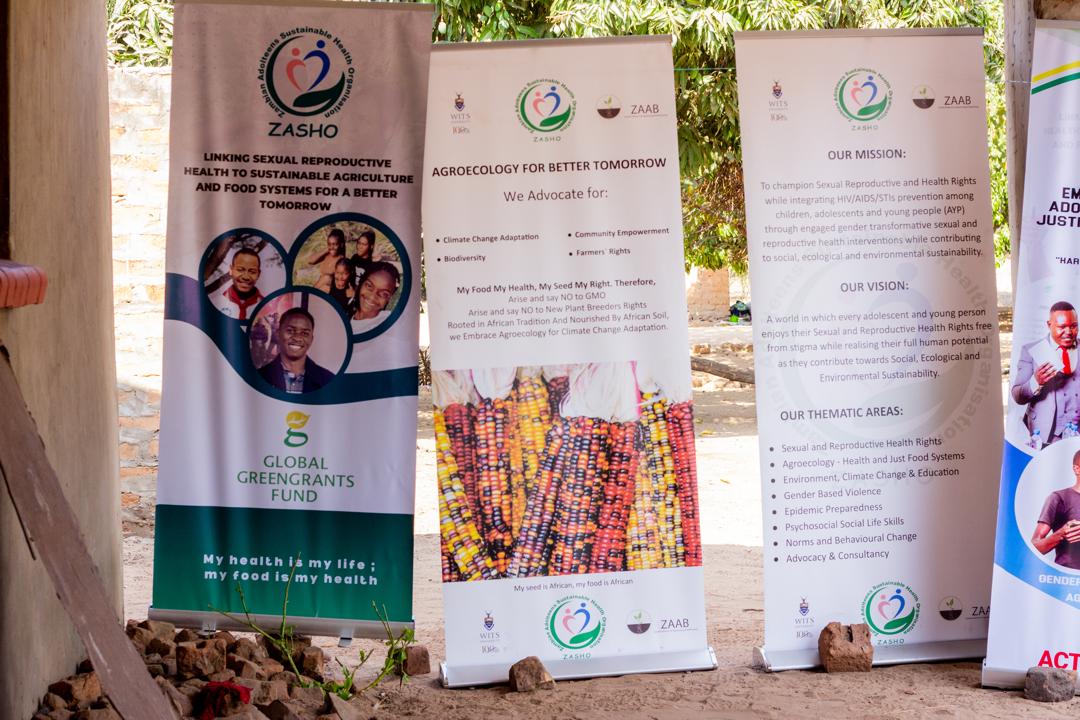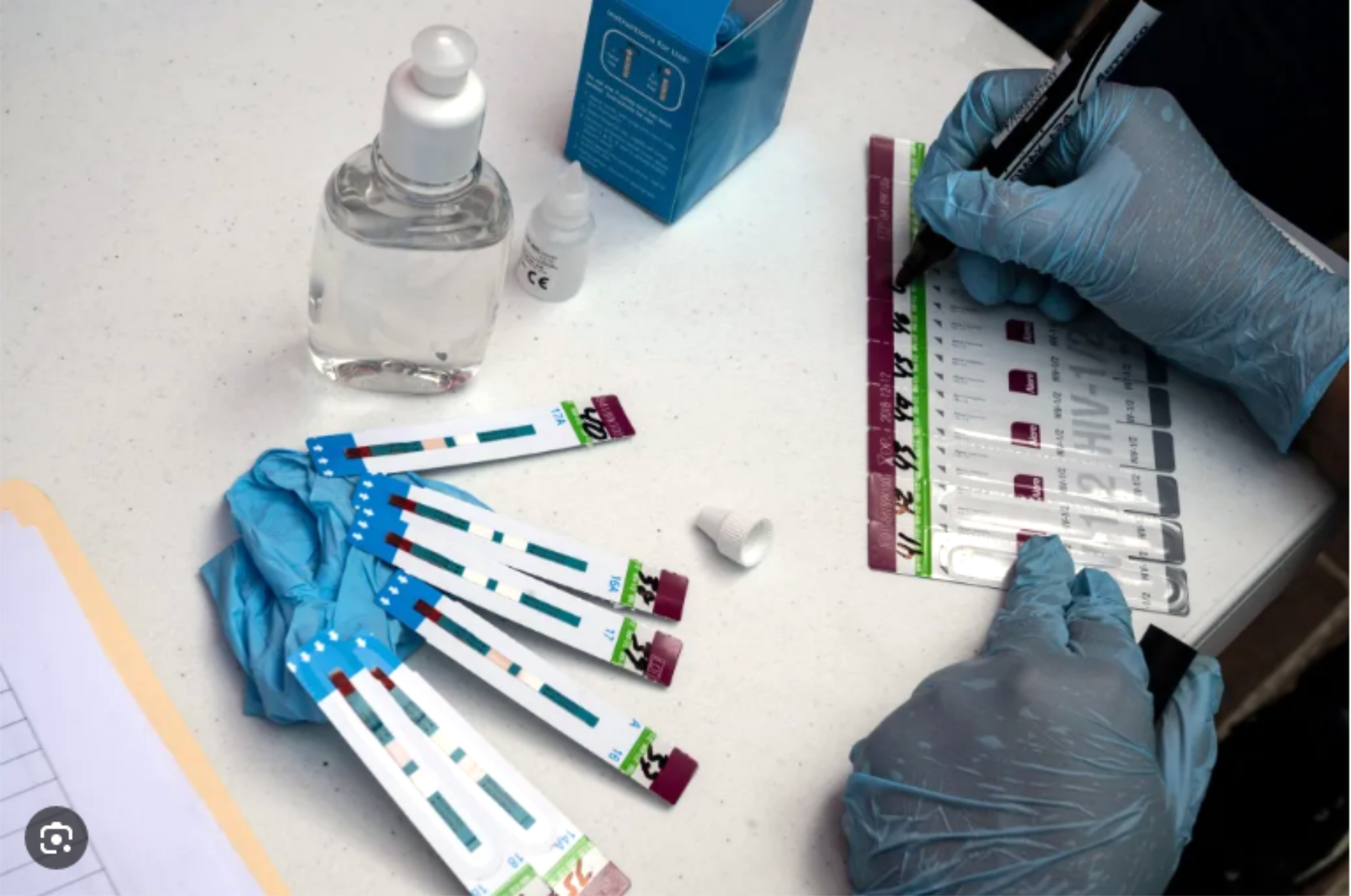
-
Equipping youth with
knowledge and skills
-
Encouraging healthier
lifestyle choices

Equipping youth with
knowledge and skills
Encouraging healthier
lifestyle choices
ZASHO’s Vision for a Healthier Future
Zambian Adolteens Sustainable Health Organisation (ZASHO) is a registered Non- Profit Organisation Championing Sexual Reproductive Health and Rights (SRHR) of adolescents and young people through gender transformative SRHR interventions. The organisation educates adolescents and young people to take responsibility of their actions towards the environment. Therefore, ZASHO is the host organisation in Zambia for the Green Flag Association (GFA) on matters of sustainable development and promotion of environmental sustainability. Our partnership started in 2020 through the Country Coordinator who is also the executive Director of ZASHO. Hence the motto, "A healthy child in a healthy natural environment, our priority".

A world in which every adolescent and young person enjoys their sexual and reproductive health Srtiogrhy ts free from stigma while realizing their full human potential as they contribute towards social, ecological and environmental sustainability.
To champion sexual reproductive and health rights while integrating HIV/AIDS/STIs prevention amongst children, adolescents and young people (AYP) through engaged gender transformative Sexual and Reproductive Health interventions while contributing to social, ecological and environmental sustainability..
Integrity – Upholding the highest ethical standards in all actions and decisions. Accountability – Taking responsibility for actions, decisions, and their impact on others. Inclusiveness – Embracing diversity and ensuring that all voices are heard and respected. Collaboration – Working together across sectors and communities to achieve common goals. Transparency – Being open, honest, and clear in communication and operations. Sustainability – Committing to practices that protect and preserve the environment for future generations Empowerment – Enabling individuals and communities to take control of their health and well-being. Respect – Valuing the dignity, rights, and contributions of every individual.
Sexual and Reproductive health and Rights, Agroecology- Health and Just food Systems, Environment, Climate Change, & Education Gender Based Violence, Epidemic preparedness, Psychosocial Life skills, Norms and behavioral change, Advocacy and Consultancy.

ZASHO Strengthens Strategic Partnerships to Promote Health, Sustainability, and Community Well-being

Zambian Adolteens Sustainable Health Organisation (ZASHO) collaborates with a diverse network of strategic partners dedicated to advancing Sexual Reproductive Health and Rights (SRHR), environmental sustainability, and community well-being. Key partners include the Zambia Alliance for Agro ecology and Biodiversity (ZAAB), the Southern African Faith Communities’ Environment Institute (SAFECEI), the Global Greengrants Fund, and Act Ubumbano. We also work closely with the Ministry of Health and the Ministry of Education to ensure our initiatives align with national priorities and effectively reach the communities most in need.
Additionally, we have a strong academic partnership with the University of the Witwatersrand, particularly the Faculty of Science within the School of Geography, Archaeology, and Environmental Studies, under the guidance of Professor Mulala Danny Simatele. These collaborations empower us to drive meaningful and sustainable change, fostering a healthier and more resilient future for all.
United for Impact: The Skilled Team Behind ZASHO’s Success
ZASHO’s Strategy: Addressing HIV, Gender-Based Violence, and Climate Change to Meet 2030 Goals

Globally, out of seven (7) new HIV infections, two (2) are young people aged between 15 to 24 years old (UNAIDS: 2021). In 2020, 410 000 young people between the ages 10 to 24 years old were newly infected with HIV of whom 150 000 were adolescents aged between 10 to 19 years old. In three young people, only one demonstrates accurate knowledge of HIV prevention (UNICEF: 2019). Then in Sub-Saharan Africa, of all HIV infections among the adolescents, 80% are girls aged between 15 and 19 years old. Adolescent girls and young women are also twice to be living with HIV than young men of the same age. In Zambia, amongst adolescents and young people who are HIV positive, 34% are females whereas 37.7 are males and only four in 10 adolescents aged 15 to 19 years do have comprehensive knowledge of HIV (ZAMPHIA:2016).
The 2030 Agenda for Sustainable Development includes a certain specific goal to ensure health lives and promote well-being for all at all ages. Within this goal it includes a specific target (3.31), which aims at ending the AIDS pandemic by 2030(UNAIDS: 2016). As Zambian Adolteens Sustainable Health organization (ZASHO) we realize that if we don't intervene on adolescents' health and the health of young people, then the Global Goal for Vision 2030 will not be achieved and the Zambian government’s efforts to provide free education will be undermined by sexual reproductive health challenges such as teenage pregnancies, early marriages, HIV infections and mental health challenges. Therefore, ZASHO is working with adolescents and young people in order to foster community and national development through advocating for delay in sexual debut and practicing healthier sexual lifestyles. This is being done with a view of meeting the 95-95-95 target for HIV prevention: 95% of people living with HIV knowing their HIV status; 95% of people who know their status on treatment and 95% of people on treatment with suppressed viral loads.
Addressing Socio-Economic Barriers: ZASHO’s Commitment to Adolescent Health and Development
With the above elaborated socio-economic and health barriers, unfortunately, adolescents and young people are robbed of their future and the opportunity to transform society and foster formulation of sustainable development strategies in the country. If these adolescents and young people are not availed with information and access to sexual and Reproductive Health services, then we place the development of our societies and country in jeopardy. In the context of this therefore, there is urgent need to equip adolescents and young people with the knowledge and the power to make their own decisions about their bodies and futures. ZASHO would like to identify itself with the efforts of Government and other stakeholders to enhance adolescent’s access to healthcare services, hence the
need for this organization to empower and educate these groups of people about good health seeking behaviors and how to access health information and education
My health, my life. My seed, my right. My food is African, my roots are African.
Environmental and Climate Change Initiatives: - Contribute to creating and enhancing environmental and climate change efforts through vibrant campaigns, education, sensitization, training, and capacity building. School Community Engagement:- Help school communities explore environmental issues, engage in problem-solving, and make informed decisions to improve their environment. Youth Nurturing: - Support boys and girls in learning about and contributing to environmental sustainability. Sustainable Farming: - Build capacity among small-scale farmers to transition to sustainable farming practices. Biodiversity Enhancement: - Educate young people and farmers on enhancing and maintaining biodiversity within agricultural systems.
To establish safe and inclusive spaces in the communities to significantly enhance access to comprehensive healthcare services such as HIV prevention interventions. To increase equitable access to care and improve good health outcomes for adolescents and children living with HIV/AIDS. To reduce, or better still, completely end gender-based violence amongst young women and men. To actively raise awareness and significantly reduce stigma associated with mental illnesses.To address and overcome barriers to quality healthcare systems through the effective integration of quality improvement and quality assurance programs.”
About 49.5% of adolescents have experienced a mental health issue at some point in their lives. This could be due to a variety of challenges such as anxieties, disorders, phobias, academic pressures, and stressful family relationships, as well as infections like HIV and other sexually transmitted infections, substance abuse including alcohol and drug misuse, among others. If these issues are left unchecked, the number of adolescents and young people affected by mental health problems will continue to rise dramatically, potentially leading to a significant increase in suicide cases and other adverse outcomes.